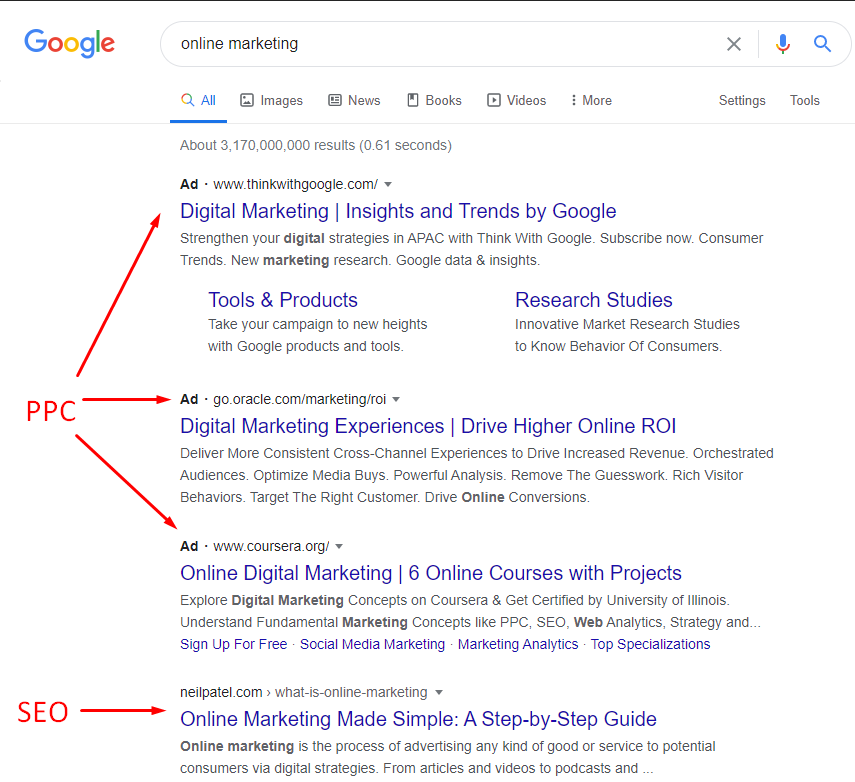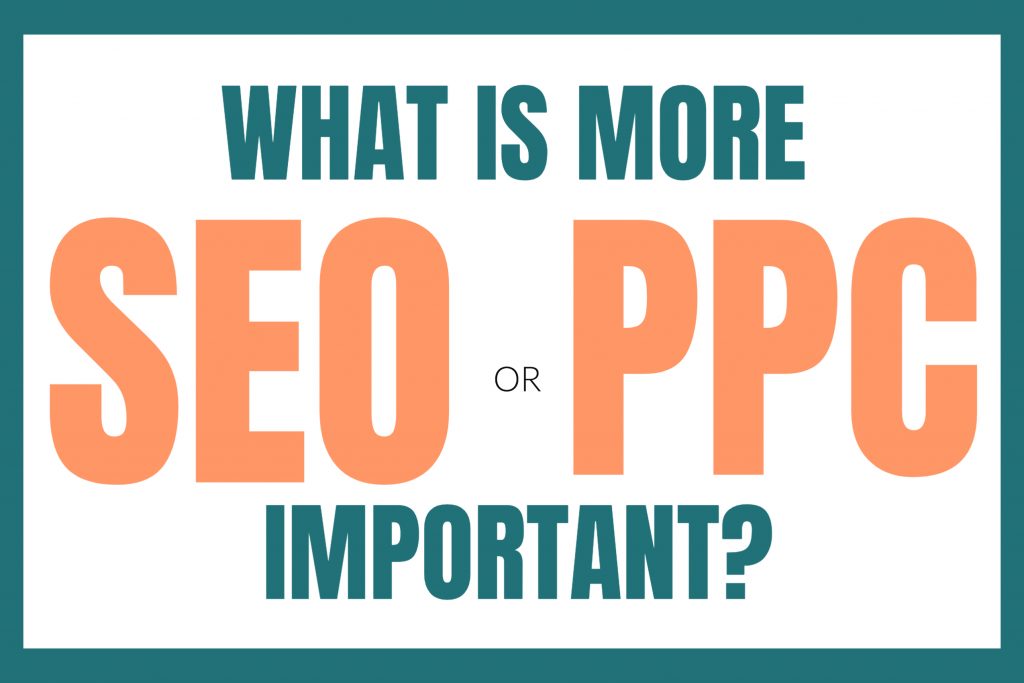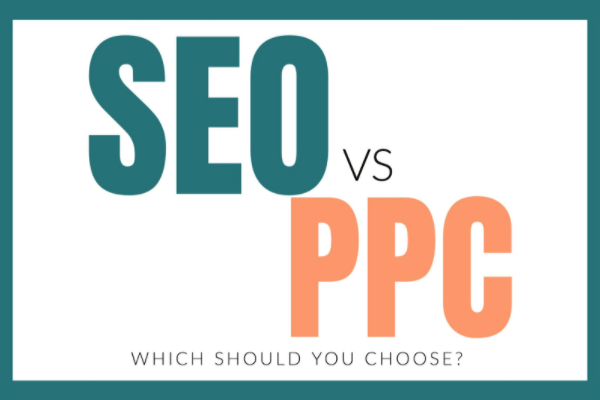Since search marketing began, the often-debated question has always been which is better, SEO or PPC? And for all of those years, there have been varying opinions on SEO vs PPC and which to choose for your business – even now, no two answers are the same. Do you want to know why?
At the risk of sounding like a typical SEO, it is because it depends. It all boils down to what is ultimately best for your business and what will work in your business’s best interests. From your budget to the market your business is in, to your goals as a business, there are many factors to take into consideration.
So let’s look together at both sides, the organic and the paid search, what it is, how they can each help you and decide which one you should choose.
What is SEO and where does it sit in relation to PPC?
Whenever someone searches anything related to your business into a search engine such as Google, the idea is for your company’s website to be one of the first to pop up, so more people click on your site. This would be organic traffic, as people have found you just by simply searching for you or something related to what you can provide.
To gain more of this organic traffic, you will need to use SEO (Search Engine Optimisation). SEO is all about making relevant, optimised content for your site, building links and making sure your site speed is as fast as possible, alongside many other elements on the page and off, to give your site the traffic you’re looking for.
Many companies look to outsource their SEO because of the in-depth nature of the task. There’s much to consider when optimising and making other changes when it comes to SEO. These changes could be around what your customers like, what your competitors are doing, and the types of keywords people are searching for.
So although it is possible to do SEO correctly yourself in-house, it takes time, patience and the right amount of tweaking and research before you start seeing the results. Speaking to an experienced SEO professional, either on a consultancy or white label basis, can often be the best option for most companies.
What is PPC or Paid Traffic?
PPC or Pay-Per-Click is pretty much exactly what it says on the tin. You are paying Google so that they show your website in search results so that you can get clicks and traffic to your website. These are in the form of ads, so as the name suggests, you pay Google each time someone clicks on your advert.
Obviously, there is more that goes on behind the scenes in terms of the ads themselves to advertise your business on Google, from using the appropriate keyword research to making sure that the ads are properly optimised to be seen by the right audience or demographic.
However, you might be thinking, “It’s as simple as paying a bit of money, and I get clicks and traffic, great!”. Well, the cost per click that you pay can depend a lot on the kind of business you have and the keywords you are willing to pay for.
For example, if you have a big law firm company, you may need to increase your budget due to the fact keywords within that industry can be pretty costly, so don’t be fooled into thinking this is the “easy” way to get traffic. The same goes for medical and other industries that can be considered sensitive.
For many businesses, it is beneficial to outsource their ad management due to the complex nature of Google Ads, and it can very easily backfire and end up costing you more money if it is not handled in the right way.
Even though it isn’t the “easy” way to get traffic, it is a faster way. So if you are looking for a quicker result and potentially faster ROI (Return on Investment) compared to SEO and getting your traffic organically, PPC or Paid Traffic may be ideal for you and your business.

SEO vs PPC
SEO is the long term relationship that your business might be looking for. It can take several months of Google crawling, interpreting and assessing your site before you start to see good organic results (those on page 1 or page 2 of SERPS), but once you begin to see those results, they will be worth the wait.
Just like a long-term relationship, you need to date, figure each other out and see if you’re compatible. Once you’ve got to know each other and you’re comfortable with how to use the various tools and techniques etc., you are able to enjoy a healthy, solid and beneficial relationship.
Whereas, if you are looking for more of a Tinder kind of relationship, then PPC could be great for you. Once you have taken some time to figure out the type of ads that work for you and the copy you need for those ads to be successful and convert, you can hopefully start to see results almost as soon as you start running the ads.
But just like a successful Tinder date, you might actually need to give three to six months of your time and effort to see the full potential of that relationship, and there may be some tweaks and changes required throughout to get the most out of your PPC Tinder relationship!
Can PPC & SEO Work Long Term?
Before we talk about if they can both work long-term, what you need to understand is that the internet is forever changing and evolving. New businesses and competitors enter the market all the time, and old ones leave. Google is forever updating its algorithms, and user behaviours online change frequently, too; all of this can affect your website’s traffic over time.
Every update or change has the possibility to affect your SEO or PPC performance, from being the top-ranking site to dropping you right down to the second page without any warning, so it is extremely important whether you choose PPC or SEO not to get too comfortable because Google can be brutal!
Long term is SEO’s middle name, and when it is done correctly, you can be almost guaranteed reliable, trustworthy leads every month. It is a continuous process of improvement, but ideally, when you are performing well organically, you should be able to reduce the amount you are spending on PPC!
PPC is known for its short term results, but surprisingly for some, it can actually work long term as well. Some websites work SEO and PPC together and have SEO as their long-term, in the background foundation and then have a PPC budget to bump up ads to give their site a steady revenue stream.
At the end of the day, both PPC and SEO offer you long term solutions. Still, SEO is considered a more cost-effective way to gain more traffic month by month compared to PPC. Doing this gives you more long term options for those choosing to have ads run continuously alongside their organic traffic, as long as the ads you are paying for are reasonable for the number of clicks and traffic you are getting.
Can PPC and SEO Work Together?
Although PPC doesn’t technically “help” SEO (running ads doesn’t automatically mean that your organic results will be higher), there is something to be said about them actually working together to give your website the best outcome on Google. SEO can provide you with a well rounded, well-structured site that certainly helps you to be seen and rank well on Google.
That, along with your PPC ad that someone has come across and clicked on to end up on your well-structured website, can lead to more business and leads.
Using PPC and SEO together can get potential visitors to your site and help gain you insight into what people like about your site and what isn’t working.
For example, if you get a click from one of your ads but then they leave as soon as they get onto your site, there could be something wrong with your landing page, which can then help you do the relevant tests and changes to improve your page.

What Is More Important: SEO or PPC?
When it comes to importance, I would suggest that you should always try to put SEO first; making sure that your website is optimised and ranking is one of the most important things you can do for your site.
SEO isn’t something you just do once and leave; it is a forever evolving and updating process that continues throughout your journey on Google, so making sure you have strong SEO is key to your long-term success online.
PPC can also be helpful for nearly every business out there trying to get a leg up in a very crowded internet world, but there are some things to consider first to decide whether PPC will work for you.
- Budget – You need to have the initial budget to start your PPC and to compete against other businesses. You need money to bid on your target keywords but also have money put aside to continue running your ads in the background to help with your overall Pay-Per-Click.
- Got Deals – If your business offers different deals and offers, then PPC would be perfect for you as you can get your ad in front of consumers quickly and easily. Having someone who can make changes to your account is imperative.
- Overall Data – Whether your site needs measurable and trackable data to start optimising on Google search, or you want data to see how visitors are using your website. Having PPC could be a good fit for you and your business and will help you get a complete overview of performance.
Which Should You Choose?
For the all-important question, which one should you choose? Well, actually, you can have both. PPC and SEO can coincide together and can help you gain faster results and long term goals.
As long as you have the time and the budget to do both simultaneously, it’s worth working on your SEO long term and in the background. You can then also have a budget for Google Ads to give you the business exposure needed to help gain more traffic and conversions to your site.
But if you had to twist my arm and get me to answer one or the other. SEO is an absolute must to just the overall success of a website. Without good SEO, your PPC would be pretty pointless, so making sure you have great content that is optimised, looks good and converts well is key to having a working, triumphant site that will set you up for years to come.


